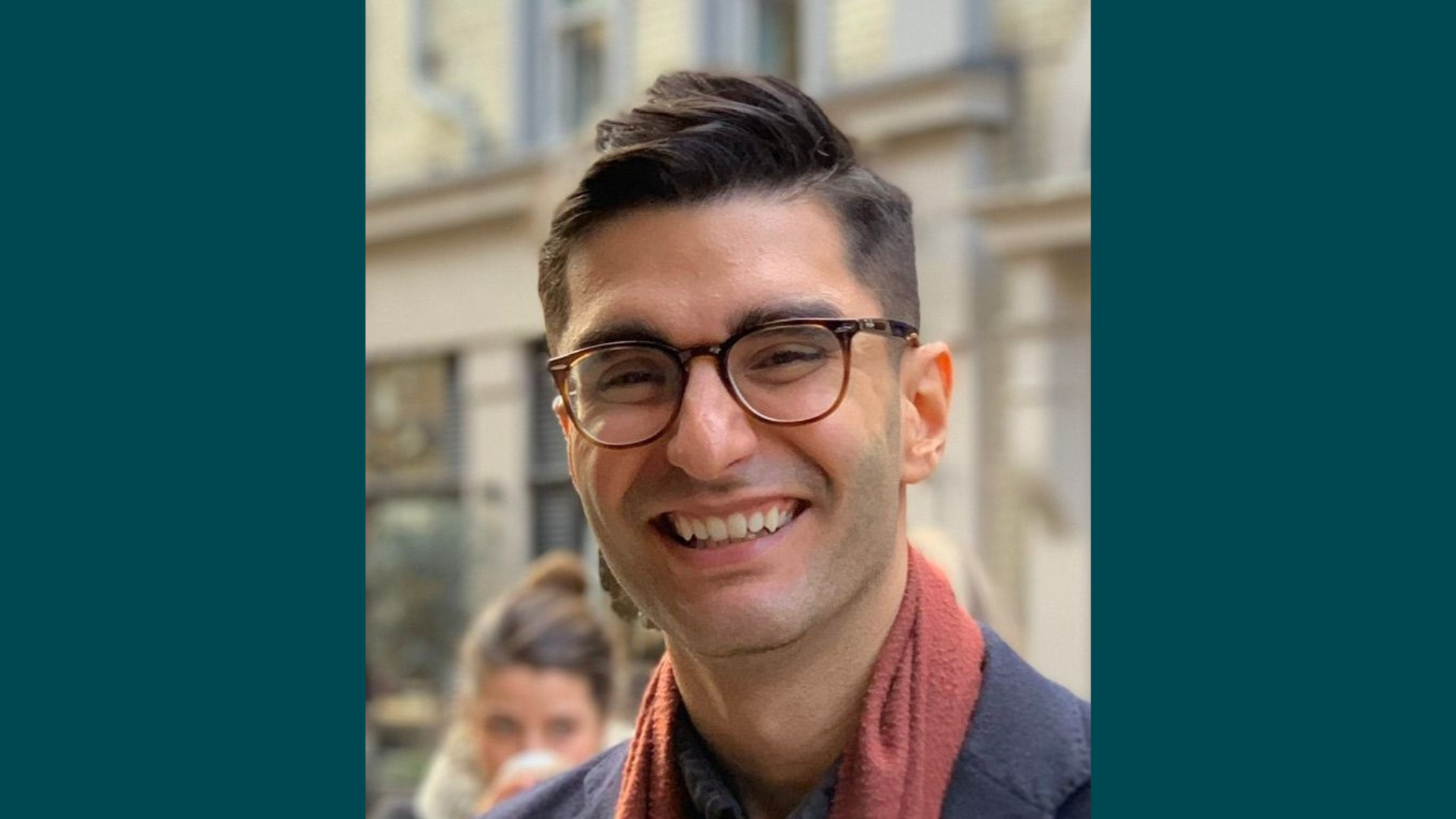Ashwin Kalra is a Clinical Research Fellow in Gynaecological Oncology and a member of the Women’s Precision Prevention team within the Centre of Cancer Screening, Prevention and Early Diagnosis at the Wolfson Institute of Population Health (Queen Mary).
He is currently in his third and final year of a Barts Charity Healthcare Professional Clinical Research Training Fellowship.
His research is focused on an end-to-end digital pathway for genetic testing at cancer diagnosis which aims to empower patients to make an informed decision about whether genetic testing is the right option for them. If they decide to do a test, they can then also do this in the comfort of their own home with a home test kit.
Why is genetic testing so important?
Genetic testing is currently being used for a range of different cancers, but it is especially important for ovarian, endometrial and colorectal cancers, as it can help identify why someone may have developed cancer. If we discover that the reason is because of underlying genetics, it can impact on treatment but also a patient’s future risk of developing different cancers. Their family members may carry the genetic variant which puts them at higher risk of disease, and we can put in interventions for them to help prevent those cancers from developing.
"It's now becoming standard practice for cancer clinicians to offer genetic testing to patients. The amount of testing being done may increase by tens of thousands per year over the next few years. We need to balance this with the right support for patients during this process."
Why is this decision so crucial for patients?
The uptake of genetic testing for ovarian cancer is around 93% across the world, because it can help with targeted treatment. But if you find out that you may have a high chance of developing another cancer, that can have a big impact on your mental health. Also, understanding that your siblings have a 50/50 chance of having that same gene alteration, or your children, can be really difficult. In certain cultures or families it can impact on family dynamics and marriage prospects. There can be guilt associated in passing these genes on to children.
That’s why it’s so important to inform patients in a balanced way about the short- and long-term impacts. Once patients learn about their genetics results there’s no going back from that, so getting informed consent is really important.
How will your research help cancer patients in East London?
When patients are diagnosed with cancer, there is a huge amount of informational burden. They are told so many things about which treatments are best and what it all means for them. This is one decision that can be taken home and thought about there. They can navigate through that counselling process with a consistent, accurate and patient friendly way of receiving that information. Technology isn’t the answer for everyone, but it’s an essential tool we can use for people with different language skills and learning needs.
"We're trying to put people firmly at the centre of their care, whilst helping the NHS with the increased demand for genetic testing. Patients can use the support networks they already have in place, in their community."
What are the key outcomes of your research?
We have developed an end-to-end digital pathway, for patients who are diagnosed with cancer to receive information about genetic testing, either through an app or website. They can take it home and talk with friends and family if they wish. When they are ready to make a decision, they can let us know online.
The app has gone through a long development process, for people with different informational needs and includes different types of media such as animations. There is also a telephone helpline which is open six days a week. We’ve just completed translating the animations into the five most commonly spoken languages in the UK, as well as Bengali because of the local population.
We are currently evaluating this pathway in a national multi-centre randomised control trial called DETECT-2. To help people access the information they need, when they’re ready, in a format they would like, and to offer support alongside that, has been great. It’s been really good to see patients interact with it.
How has the Barts Charity fellowship supported you?
The fellowship has allowed me to learn so many new skills, especially in understanding risks and mitigating them. Working within our team has been amazing – everyone is really motivated and driven by the questions we want to answer.
I want to say a huge thank you to Barts Charity. Thanks to the fellowship, I’ll now look at patient care and their access to treatment in a completely different way. Supporting people like me to bring the benefits of research back into clinical care has an immeasurable benefit for patients who need it the most.


